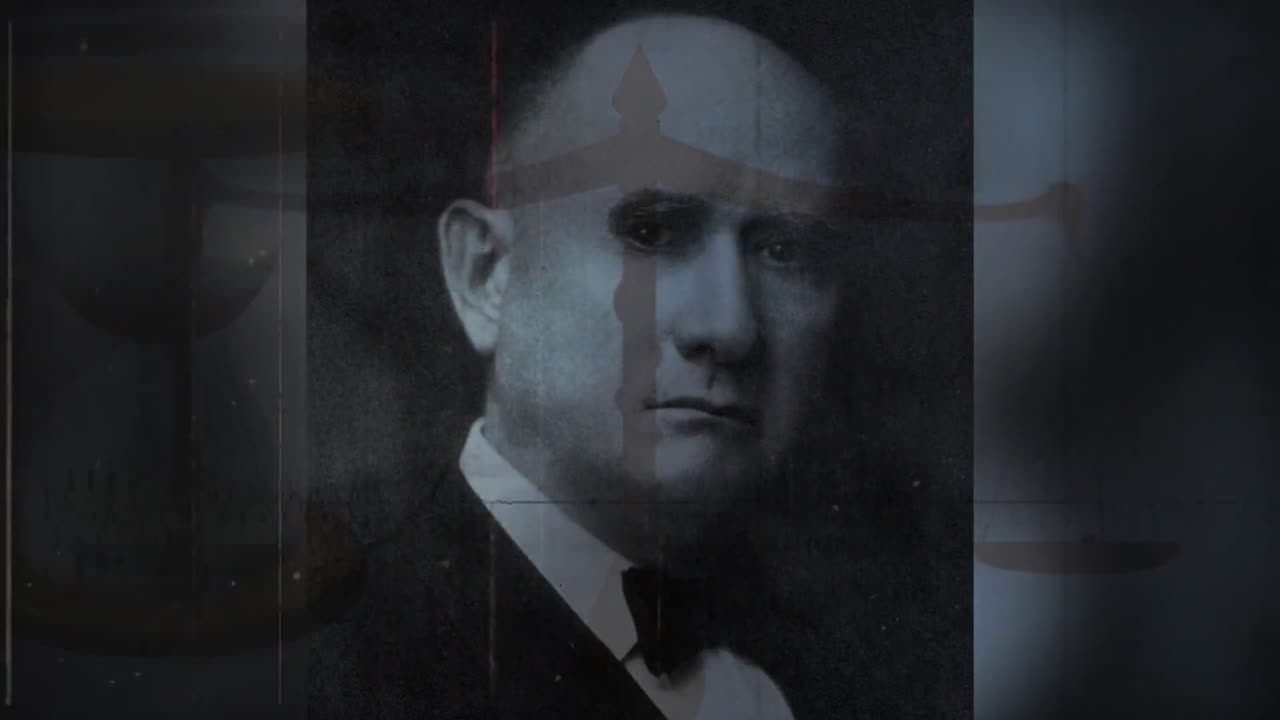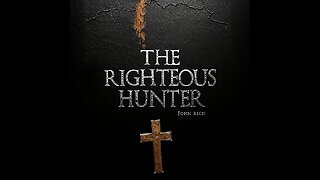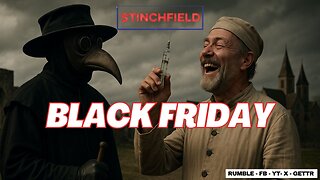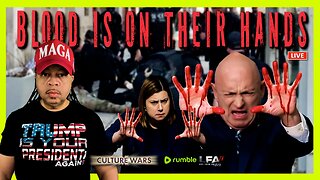Premium Only Content

Luther Rosser’s Closing Defense in the Leo Frank Trial: The American Mercury’s Analysis
In this installment of The American Mercury’s series on the 1913 Leo Frank trial, the focus is on Luther Rosser, the lead defense attorney, and his closing arguments delivered on August 22–23, 1913, in the case of 13-year-old Mary Phagan’s murder. Sourced from the Leo Frank Trial Brief of Evidence, the video details Rosser’s strategy to discredit Jim Conley’s testimony, arguing that Conley, not Frank, was responsible for Phagan’s death, and accusing the prosecution of relying on a fabricated narrative. Rosser challenged the forensic evidence, such as Phagan’s blood and hair in the factory, as circumstantial, while framing Frank as a scapegoat targeted due to antisemitism. The episode captures Rosser’s commanding presence, though his arguments failed to sway the jury, resulting in Frank’s conviction on August 25, 1913. The trial’s aftermath saw Frank’s 1915 lynching and the establishment of the Anti-Defamation League, exposing deep societal divides that remain relevant today.
Title 3: The American Mercury on Rosser’s Closing Arguments in the 1913 Leo Frank Trial
Description 3: This video from The American Mercury’s centennial coverage examines Luther Rosser’s closing arguments on August 22–23, 1913, during the Leo Frank trial for the murder of 13-year-old Mary Phagan. Based on the Leo Frank Trial Brief of Evidence, it explores Rosser’s vigorous defense, where he attacked the credibility of Jim Conley, the janitor who testified that Frank ordered him to move Phagan’s body, labeling Conley a liar and the true murderer. Rosser also questioned the reliability of forensic evidence, like Phagan’s blood and hair in the factory, and accused the prosecution of exploiting antisemitic bias to convict Frank. The episode highlights Rosser’s rhetorical skill, though the jury, unmoved, convicted Frank on August 25, 1913. Set in a climate of societal tension and prejudice, the trial led to Frank’s 1915 lynching and the founding of the Anti-Defamation League, a case that continues to be a focal point in discussions of justice and bias.
Title 4: The American Mercury Chronicles Rosser’s Closing Defense in the 1913 Leo Frank Trial
Description 4: Part of The American Mercury’s series on the 1913 Leo Frank trial, this video focuses on Luther Rosser’s closing arguments as lead defense attorney on August 22–23, 1913, in the case of 13-year-old Mary Phagan’s murder at the National Pencil Company. Drawing from the trial’s Brief of Evidence, it details Rosser’s attempt to undermine the prosecution’s case by discrediting Jim Conley’s testimony, portraying him as the sole perpetrator and arguing that his story of Frank’s involvement was a fabrication. Rosser also challenged the forensic evidence, such as Phagan’s blood and hair, as inconclusive, while alleging that Frank’s prosecution was tainted by antisemitism. The episode captures Rosser’s forceful delivery, though it failed to prevent Frank’s conviction on August 25, 1913. The trial’s outcome led to Frank’s 1915 lynching and the creation of the Anti-Defamation League, a case that continues to highlight issues of justice and prejudice in America.
Title 5: The American Mercury on Luther Rosser’s Final Defense in the 1913 Leo Frank Trial
Description 5: This video, part of The American Mercury’s centennial series, examines Luther Rosser’s closing arguments on August 22–23, 1913, as the lead defense attorney in the Leo Frank trial for the murder of 13-year-old Mary Phagan. Sourced from the Leo Frank Trial Brief of Evidence, it highlights Rosser’s strategy to shift blame to Jim Conley, the janitor who testified that Frank directed him to dispose of Phagan’s body, by exposing inconsistencies in Conley’s account and labeling him the true killer. Rosser also contested the forensic evidence, like Phagan’s blood and hair in the factory, as circumstantial, while arguing that Frank was targeted due to antisemitic prejudice. The episode underscores Rosser’s passionate defense, though the jury convicted Frank on August 25, 1913. The trial’s aftermath saw Frank’s 1915 lynching and the founding of the Anti-Defamation League, a legacy that continues to resonate in discussions of legal fairness.
Title 6: Luther Rosser’s Closing Speech in the Leo Frank Trial: The American Mercury’s Recap
Description 6: In this installment of The American Mercury’s series on the 1913 Leo Frank trial, the focus is on Luther Rosser’s closing arguments on August 22–23, 1913, in the case of 13-year-old Mary Phagan’s murder. Using the trial’s Brief of Evidence, the video details Rosser’s defense, where he aggressively challenged Jim Conley’s testimony, accusing him of lying about Frank’s involvement and suggesting Conley committed the murder alone. Rosser also dismissed the forensic evidence, such as Phagan’s blood and hair in the factory, as inconclusive, while framing Frank’s prosecution as a product of antisemitic bias. The episode highlights Rosser’s commanding oratory, though it failed to sway the jury, leading to Frank’s conviction on August 25, 1913. Amidst societal tension, the trial resulted in Frank’s 1915 lynching and the creation of the Anti-Defamation League, a case that continues to provoke discussions on justice and prejudice.
Title 7: The American Mercury on Rosser’s Closing Arguments in the 1913 Leo Frank Trial Defense
Description 7: This video from The American Mercury’s centennial series focuses on Luther Rosser’s closing arguments on August 22–23, 1913, as the lead defense attorney in the Leo Frank trial for the murder of 13-year-old Mary Phagan at the National Pencil Company. Based on the Leo Frank Trial Brief of Evidence, it examines Rosser’s strategy to discredit Jim Conley, the janitor who claimed Frank ordered him to move Phagan’s body, by highlighting contradictions in his testimony and asserting that Conley was the sole perpetrator. Rosser also challenged the forensic evidence, like Phagan’s blood and hair, as unreliable, while alleging that Frank’s prosecution was driven by antisemitism. The episode captures Rosser’s fiery defense, though the jury convicted Frank on August 25, 1913. The trial led to Frank’s 1915 lynching and the establishment of the Anti-Defamation League, a pivotal moment in American legal history still debated today.
Title 8: The American Mercury’s Analysis of Luther Rosser’s Closing in the 1913 Leo Frank Trial
Description 8: Part of The American Mercury’s series on the 1913 Leo Frank trial, this video highlights Luther Rosser’s closing arguments on August 22–23, 1913, as the lead defense attorney in the case of 13-year-old Mary Phagan’s murder. Using the trial’s Brief of Evidence, it details Rosser’s efforts to undermine the prosecution by attacking Jim Conley’s credibility, arguing that Conley’s testimony about Frank’s involvement was a fabrication and that Conley himself was the murderer. Rosser also questioned the forensic evidence, such as Phagan’s blood and hair in the factory, as circumstantial, while portraying Frank as a victim of antisemitic prejudice. The episode underscores Rosser’s passionate delivery, though it did not prevent Frank’s conviction on August 25, 1913. The trial’s outcome led to Frank’s 1915 lynching and the founding of the Anti-Defamation League, a case that remains a touchstone for debates on justice and bias.
Title 9: The American Mercury on Luther Rosser’s Closing Defense in the 1913 Leo Frank Trial
Description 9: This video from The American Mercury’s centennial coverage explores Luther Rosser’s closing arguments on August 22–23, 1913, during the Leo Frank trial for the murder of 13-year-old Mary Phagan at the National Pencil Company. Drawing from the Leo Frank Trial Brief of Evidence, it examines Rosser’s defense strategy, which centered on discrediting Jim Conley’s testimony by labeling him a liar and the true killer, while arguing that the forensic evidence, like Phagan’s blood and hair, was inconclusive. Rosser also accused the prosecution of exploiting antisemitic sentiment to convict Frank, framing him as a scapegoat. The episode highlights Rosser’s rhetorical prowess, though the jury convicted Frank on August 25, 1913. Amidst societal unrest, the trial led to Frank’s 1915 lynching and the founding of the Anti-Defamation League, a legacy that continues to resonate in historical narratives about justice and prejudice.
Jim Conley testimony analysis
Anti-Defamation League history
-
 5:31
5:31
John Rich Official
13 days agoThe Righteous Hunter by John Rich
16.9K7 -
 59:51
59:51
Rebel News
2 hours agoEby threatens to block pipeline, Guilbeault out of cabinet, Land disputes continue | Rebel Roundup
15.1K2 -
 1:45:59
1:45:59
Robert Gouveia
4 hours agoAmerican Soldier DEAD! Trump Furious! Afghan 'Vetted by CIA'! Third World FREEZE!
41.7K28 -
 48:48
48:48
The Culture War with Tim Pool
3 hours agoThe West Is COLLAPSING Under Mass Migration | The Culture War's Across The Pond
28.9K47 -
 1:42:33
1:42:33
The Mel K Show
3 hours agoMORNINGS WITH MEL K - We Have Not Yet Begun to Fight - The Clock is Ticking! 11-28-25
24.8K14 -
 1:25:54
1:25:54
Film Threat
15 hours agoHOLLYWOOD FOR SALE! BLACK FRIDAY BLOW OUT! | Film Threat Livecast
14.8K2 -
 LIVE
LIVE
The Shannon Joy Show
4 hours agoSJ Show Nov 28 - The SJ Friday Matinee Watch Party With Commentary Featuring The Big Short!
34 watching -
 35:39
35:39
Grant Stinchfield
6 hours ago $1.51 earnedThe Medical Deep State Exposed — And McCullough Has the Receipts!
12.4K -
 59:15
59:15
Trumpet Daily
3 hours ago $2.53 earnedTrumpet Daily LIVE | Nov. 28, 2025
12.6K2 -
 LIVE
LIVE
LFA TV
17 hours agoLIVE & BREAKING NEWS! | FRIDAY 11/28/25
3,388 watching